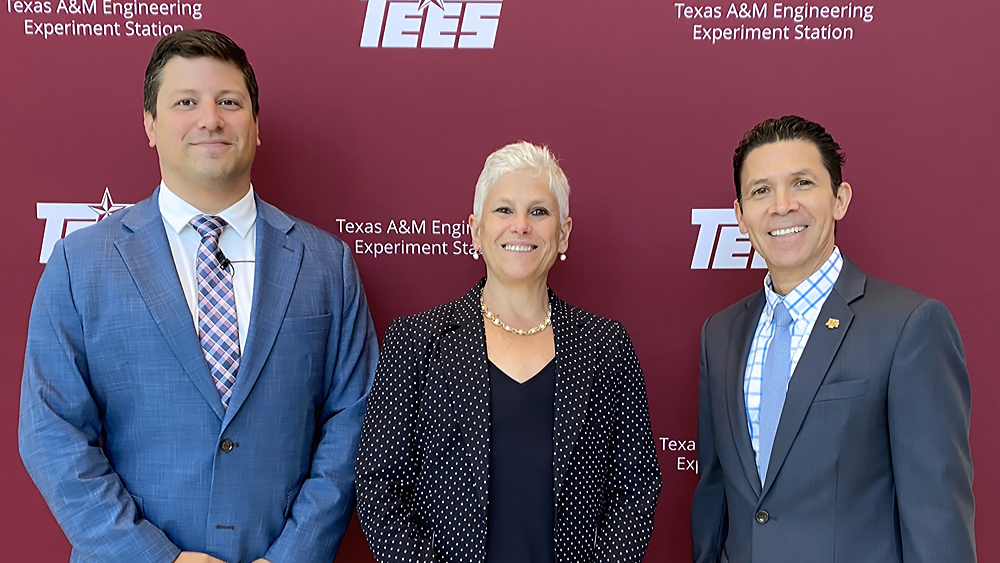
The White House and the U.S. Department of Defense (DOD) partnered with the Texas A&M Engineering Experiment Station (TEES) to host a summit in Westlake, Texas, today in an effort to improve the supply chain resilience of critical materials.
“TEES is uniquely positioned at the intersection of technology, workforce development, economics and policy to foster innovations that can advance our nation’s global competitiveness,” said Dr. John E. Hurtado, interim vice chancellor for engineering and interim director of TEES. “We are proud to join government and industry leaders to offer our expertise in solving manufacturing challenges to accelerate national security innovation and secure the future of the U.S. industrial base.”
The summit convened key stakeholders and industry leaders to discuss the significance of restoring the U.S. rare earth magnetics supply chain, how global supply chain complexities impact domestic defense production capacity and the importance of small business innovation to defense industrial base capabilities.
“TEES is honored to have been selected as the White House and Department of Defense regional partner in response to Executive Order 14017,” said Rob Gorham, executive director for manufacturing initiatives at TEES and the SecureAmerica Institute. “The future of U.S. national and economic security depends on a whole-of-nation approach, and this summit reinforces our commitment to addressing manufacturing supply chain challenges of the 21st century.”
Executive Order 14017 also called for a comprehensive review of supply chains in critical sectors. A resilient, diverse, robust and secure supply chain ensures the development and sustainment of capabilities crucial to national security. Recommendations from speakers provided the DOD with insight to develop a strategic roadmap to reinvigorate the defense industrial base capabilities.
“Increasing supply chain resilience across all defense-critical sectors remains a top priority for the department,” said Deborah Rosenblum, performing the duties of assistant secretary of defense for industrial base policy. “A resilient defense industrial base is a critical element of U.S. power and provides an enduring advantage. To build resilience, the DOD must use all of its tools in addition to collaborating with the interagency, international and industry partners.”
The national resolve to fortify America’s supply chains through initiatives like those contained in the Biden-Harris Administration’s Bipartisan Innovation Act as well as the House Armed Services Committee’s critical supply chain task force will help support and accelerate domestic supply of critical materials in Texas and across the country.
During the COVID-19 pandemic, global supply chains shifted to domestic capabilities, revealing fragility in the modern supply chain structure. Strengthening the U.S. manufacturing and industrial base will require converging industry, academia and government stakeholders to redesign supply chain networks to ensure vital needs of the nation are met throughout manufacturing disruptions. This summit demonstrated a commitment to renewing and revitalizing U.S. manufacturing. By actively engaging with government at all levels, the defense industrial base is building resiliency and establishing a network of domestic and allied supply chains to meet national security needs.
